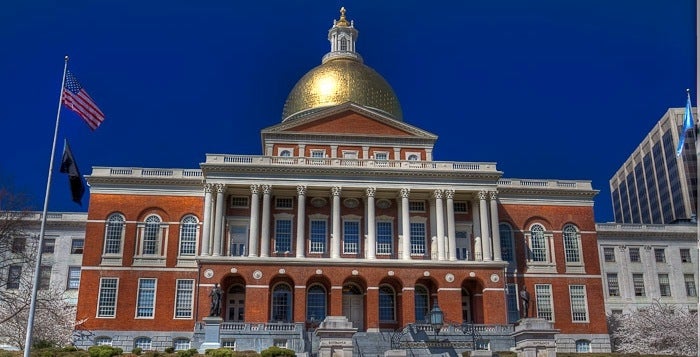Amid efforts at the state level to find a way to control health care costs, prescription drugs have been singled out as one of, if not the, biggest drivers of growth in spending for consumers and businesses.
But whether increasing transparency of drug pricing can serve as a catalyst for lower prices, or if the market itself can be trusted to respond to public pressure remains a point of contention.
A broad array of public health interest groups, insurers and lawmakers testified on Monday in favor of forcing manufacturers of the most expensive drugs on the market to justify their pricing to state regulators. Transparency, they said, would pull back the curtain on the industry and lead to a better understanding of drug pricing and more informed prescription drug policies moving forward.
The state’s leading biopharmaceutical lobbying group, however, argued that transparency would do nothing to actually reduce costs for consumers, and pointed to steps being taken outside of the legislative process to address drug costs without new government mandates.
“It is imperative for drug costs to be transparent as a first step. I don’t think we can wait any longer. Our patients are suffering,” said Dr. Zoe Tseng, a primary care physician from Brigham and Women’s Hospital on behalf of the American College of Physicians.
Tseng used one of her patients with asthma to illustrate her point, indicating that as the cost of albuterol has risen from $15 a decade ago to over $100, even with insurance, her patient has tried to control expenses by rationing use of an inhaler, leading to more hospital visits.
Multiple bills have been filed this session to require drug manufacturers to disclose pricing factors, including legislation sponsored by Rep. Christine Barber and Sen. Linda Forry (H 3223/ S 627) that would require manufacturers of the most expensive drugs to explain the reasons for their prices and to participate in the Health Policy Commission’s (HPC) annual hearings on health care costs.
Senate Assistant Majority Leader Mark Montigny has filed similar legislation (S 652) that would require pharmaceutical companies, insurers and pharmacy benefit managers to report pricing data to the Center for Health Information and Analysis, and direct the Health Policy Commission to develop a list of prescription drugs whose price is excessively higher than justified.
“There is no penalties in this bill. It’s a way to get at transparency and data and have a conversation about drug prices,” Barber told the Joint Committee on Health Care Financing about her bill.
The Health Policy Commission’s annual cost trends report found prescription drugs were the “single largest contributor” to increases in Massachusetts health care spending in 2015. Prescription drug spending grew 10.2 percent to $8.1 billion, or 14.1 percent of total health care expenditures in 2015.
Total health care spending in Massachusetts grew 4.1 percent in 2015 to $57.4 billion, with prescription drug expenditures accounting for 36 percent of the overall growth, according to the Center for Health Information and Analysis (CHIA).
Robert Coughlin, a former House member and president and CEO of MassBIO, said interest in government intervention to address prescription drug prices is driven by three things: constituent complaints, insurers looking to justify “sometimes hefty” annual premium and co-pay increases, and the “incorrect perception” that nothing else is being done.
“Despite what the proponents of these bills claim, these bills would do nothing to decrease out-of-pocket costs for patients and would have no impact on what consumers pay for their health insurance,” Coughlin testified.
To the contrary, Coughlin said that “serious and meaningful actions” are being taken outside of the State House to address drug prices. He noted a partnership formed in March between MassBIO, the Massachusetts Association of Health Plans and Blue Cross Blue Shield to pilot “value-based contracting” in Massachusetts with the help of the Network for Excellence in Health Innovation (NEHI).
“It has the potential to achieve superior health for patients while making the growth of health care costs more sustainable over time by having insurers only pay for drugs based on the value that they bring to patients. Massachusetts is the perfect testing ground for this novel arrangement,” Coughlin said.
Coughlin also said that some high-profile biopharmaceutical companies have pledged to limit increases to single-digit percentages, in some cases below inflation, while the new Food and Drug Administration commissioner has made lowering prescription drug prices a priority by promoting the use of generics.
MAHP Executive Vice President Eric Linzer, who testified in support of the price transparency bills, downplayed the potential of the NEHI pilot.
“Value-based contracting is not a solution. It’s at best a compliment, not a panacea,” Linzer told the committee. He said that value-based contracting will not work when applied to a drug that has no market competition, like the wildly expensive new drug Sovaldi, which is used to treat Hepatitis C.
He said the participants have only met once since the partnership formed in March.
Rep. Jeffrey Sanchez, co-chair of the Health Care Financing Committee, expressed some frustration that more progress hasn’t been made in the marketplace after years of discussion.
“I feel like we’re still at Point 1,” Sanchez said. Linzer responded, “The short answer is yes.”
Paul Hattis, a former member of the HPC board, argued in favor of more transparency and a “more assertive role” for the HPC and CHIA. “It’s not enough for our state to simply sit back and say let’s wait for the federal government to do something” he said.
MASSPIRG Legislative Director Deirdre Cummings, testifying in support of the Montigny bill, said pharmacy cost increases for commercial health plans have been growing 300 percent faster than the outpatient services, the second largest cost driver.
“What we think is most important is that we get under the hood…,” Cummings said. “We think that this bill is really important for us to figure out what is really going on here and protect consumers from plain old price gouging.”

